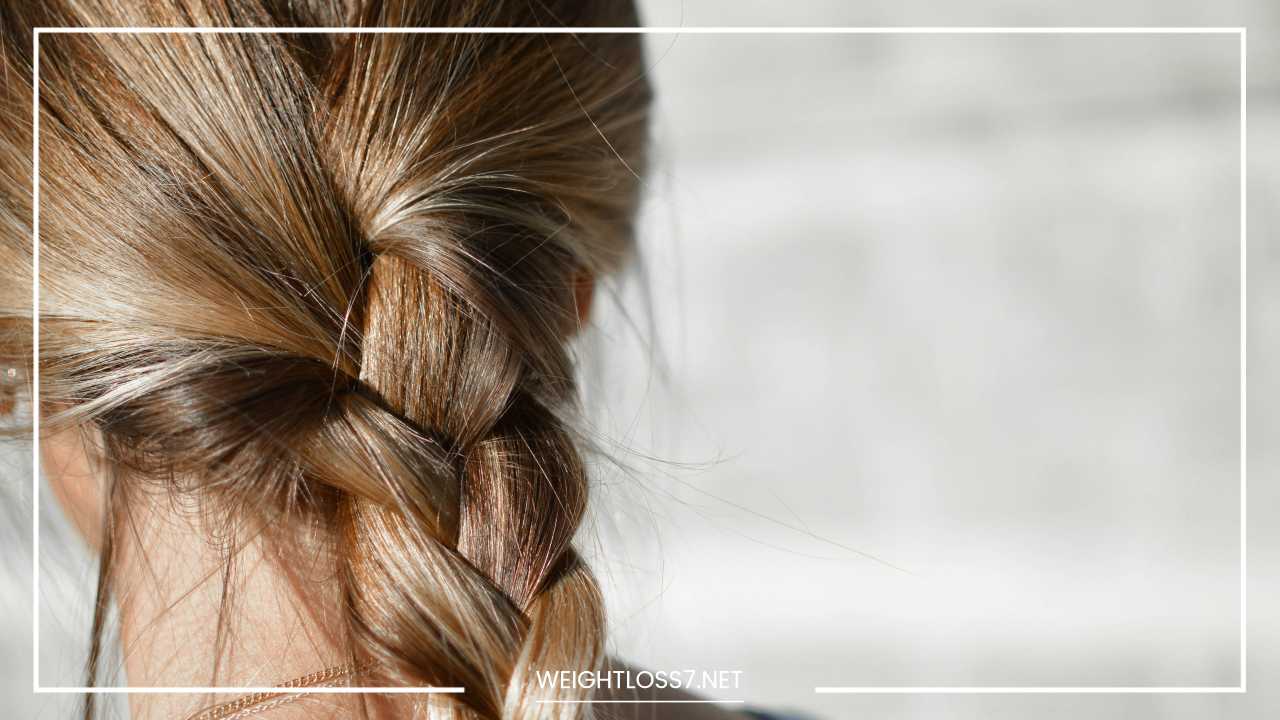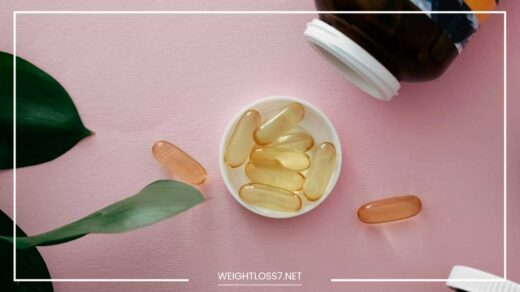Unleash Natural Hair Beauty: Organic Hair Treatments Guide

Organic Hair Treatments
Unleash Your Hair’s Natural Beauty: A Comprehensive Guide to Organic Hair Treatments
In today’s fast-paced world, we’re constantly bombarded with promises of instant results, and hair care is no exception.
Chemical-laden products boast miraculous transformations, from frizz-free perfection to overnight growth spurts.
But what if there was a gentler, more sustainable way to achieve healthy, beautiful hair? Enter the world of organic hair treatments.
This comprehensive guide dives deep into the benefits of organic hair care, unveils a treasure trove of natural ingredients with their unique properties, and provides a plethora of DIY recipes and professional-grade at-home treatments.
We’ll also equip you with valuable tips to maximize the effectiveness of your organic hair care routine and transform your hair into its naturally radiant best.
The Allure of Organic Hair Care: Why Go Natural?
There are numerous compelling reasons to ditch the chemicals and embrace organic hair treatments. Here are some key benefits that will sway you towards a more natural approach:
-
Gentle on Your Scalp: Conventional shampoos and conditioners often contain harsh sulfates and silicones. Sulfates can strip your scalp of its natural oils, leaving it feeling dry and irritated. Silicones, while initially providing a smooth feel, can coat the hair shaft, hindering the penetration of beneficial nutrients. Organic products, on the other hand, utilize plant-based cleansers and conditioners that are milder and less likely to cause irritation. This is especially beneficial for people with sensitive scalps or those prone to conditions like eczema or psoriasis.
-
Nourishment for Healthy Hair Growth: Organic hair care products are packed with nature’s bounty – vitamins, minerals, and antioxidants that nourish your hair from root to tip. These natural elements work in harmony to support healthy hair growth, strengthen strands, and promote elasticity. Unlike chemical-laden products that offer a temporary fix, organic treatments address the underlying health of your hair, leading to long-term improvements in its texture, strength, and shine.
-
Sustainable Choice for a Healthy Planet: Organic products are often derived from renewable resources and produced with eco-friendly practices. By choosing organic, you’re not just nourishing your hair; you’re contributing to a healthier planet by minimizing your environmental footprint. Organic farming methods reduce water consumption and soil degradation, promoting biodiversity and fostering a healthier ecosystem.
-
Reduced Allergic Reactions: Many people experience allergic reactions to harsh chemicals found in conventional hair care products. These allergies can manifest as scalp irritation, redness, dryness, or even hair loss. Organic products, with their natural ingredients, are less likely to trigger allergic reactions, making them a safer choice for people with sensitive scalps or allergies.
A Natural Apothecary: Exploring the Powerhouse Ingredients in Organic Hair Care
Mother Nature offers a bounty of potent ingredients waiting to be harnessed for healthy hair. Here’s a closer look at some of the most common and effective ones, along with their unique properties:
-
Carrier Oils: These versatile oils are the workhorses of organic hair care. They penetrate the hair shaft, providing deep conditioning and nourishment. Popular carrier oils include:
- Coconut Oil: Lauded for its high content of lauric acid, coconut oil easily penetrates the hair shaft, adding moisture and shine. It’s particularly beneficial for dry, damaged, and coarse hair.
- Argan Oil: Rich in vitamin E and fatty acids, argan oil helps improve hair elasticity, reduce frizz, and promote a healthy scalp.
- Jojoba Oil: With a chemical structure similar to sebum (the natural oil produced by the scalp), jojoba oil balances scalp oil production and adds shine without leaving a greasy residue.
- Avocado Oil: Loaded with vitamins A, D, E, and B vitamins, avocado oil deeply nourishes and strengthens hair, promoting healthy growth.
-
Essential Oils: These concentrated plant extracts offer a range of benefits beyond just fragrance. However, it’s important to remember that essential oils are potent and should always be diluted before use. Here are some popular essential oils used in organic hair care:
- Rosemary Oil: Known to stimulate hair growth and improve scalp circulation, rosemary oil is a fantastic addition to hair growth treatments.
- Lavender Oil: This calming oil soothes irritation and promotes a healthy scalp environment.
- Tea Tree Oil: Possessing antifungal properties, tea tree oil can help combat dandruff and scalp conditions.
- Peppermint Oil: Offering a refreshing cooling sensation, peppermint oil can stimulate the scalp and promote hair growth.
-
Butters: Shea butter and cocoa butter are renowned for their rich moisture content and fatty acids. These butters are ideal for dry and damaged hair, providing deep conditioning and restoring elasticity.
-
Humectants: These ingredients help your hair retain moisture, preventing dryness and breakage. Some popular humectants include:
-
Aloe Vera Gel: This soothing gel is packed with vitamins and minerals that hydrate and nourish the scalp. It also promotes healing and can help reduce scalp irritation.
- Honey: A natural humectant, honey attracts and retains moisture in the hair shaft, leaving it soft and manageable.
-
Clays: Used in hair masks, clays like bentonite and rhassoul help remove build-up and impurities from the scalp. These clays also help balance sebum production, making them beneficial for those with oily scalps.
-
Herbs and Plants: Infused into rinses or masks, herbs and plants offer a variety of benefits for hair health. Here are some examples:
- Rosemary: Rich in antioxidants, rosemary helps improve scalp circulation and promotes hair growth.
- Nettle: This herb contains vitamins and minerals that nourish the scalp and strengthen hair follicles.
- Chamomile: With its calming properties, chamomile soothes irritation and adds shine to hair.
- Horsetail: This plant is a natural source of silica, which helps strengthen hair and prevent breakage.
-
Fruit Vinegars: Apple cider vinegar, a popular ingredient in organic hair care, helps balance scalp pH levels. It also clarifies the scalp by removing product build-up and leaving hair feeling clean and refreshed.
DIY Magic: Unveiling Recipes for Luscious Locks
Ready to embark on your organic hair care journey? Here are some easy-to-follow DIY recipes for common hair concerns:
Deep Conditioning Mask for Dry Hair:
- 2 tbsp ripe avocado, mashed
- 1 tbsp honey
- 1 tbsp olive oil
- 1 tsp lemon juice (optional, for oily hair)
Combine all ingredients in a bowl. Apply the mask to damp hair, focusing on the ends. Leave it on for 20-30 minutes, then rinse thoroughly with lukewarm water.
Scalp Scrub for Dandruff:
- 2 tbsp coconut oil
- 1 tbsp brown sugar
- 10 drops tea tree oil (diluted)
Mix the ingredients thoroughly. Massage the scrub gently onto your scalp, focusing on areas prone to dandruff. Leave it on for 10 minutes before rinsing with lukewarm water.
Hair Growth Rinse:
- 2 cups brewed rosemary tea (cooled)
- 5 drops peppermint oil (diluted)
After shampooing, rinse your hair with the rosemary tea mixture. Follow with a cool water rinse to seal the hair cuticle.
Shine Boosting Spray:
- 1 cup apple cider vinegar (diluted with water)
- 1 tbsp raw honey
- 5 drops lavender oil (optional)
Combine the ingredients in a spray bottle. After showering, spritz your hair lightly with the mixture, focusing on the mid-lengths and ends. Do not rinse.
Bonus Recipe: Volumizing Hair Mask:
- 1 ripe banana, mashed
- 1 tbsp raw honey
- 1 tbsp yogurt
- 1 tsp lemon juice
Combine all ingredients in a bowl. Apply the mask to damp hair, focusing on the roots and mid-lengths. Leave it on for 15-20 minutes, then rinse thoroughly with lukewarm water.
These are just a few examples, and the possibilities are endless! Experiment with different ingredients to find what works best for your hair type and needs.
Beyond DIY: Exploring Professional-Grade Organic Hair Treatments at Home
While DIY treatments are wonderful, there are also professional-grade organic hair care products available that can be used at home. These products offer a more concentrated dose of active ingredients and can be particularly effective for addressing specific concerns:
- Hair Masks: Look for masks formulated with organic ingredients like shea butter, coconut oil, and avocado oil for deep conditioning and nourishment.
- Scalp Serums: These serums often contain essential oils like rosemary and peppermint to stimulate hair growth and promote a healthy scalp environment.
- Hair Oils: Apply a few drops of organic hair oil, like argan oil or jojoba oil, to damp hair for added shine and frizz control.
Important Note: When purchasing organic hair care products, look for certifications that guarantee the organic content. Some reputable certifications to look for include USDA Organic, Ecocert, and Cosmos Organic.
Optimizing Your Organic Hair Care Journey: Essential Tips for Success
To maximize the effectiveness of your organic hair care routine, here are some valuable tips:
- Patch Test: Before applying any new product to your hair, do a patch test on a small area of your inner arm. Wait 24 hours to check for any allergic reactions.
- Consistency is Key: Organic treatments may take a little longer to show results compared to chemical-based products. Be patient and consistent with your routine for optimal results.
- Embrace a Holistic Approach: A healthy scalp is the foundation for healthy hair. Consider incorporating a healthy diet rich in vitamins, minerals, and essential fatty acids to nourish your hair from the inside out. Additionally, managing stress levels and getting enough sleep can contribute to overall hair health.
-
Listen to Your Hair: Pay attention to how your hair reacts to different treatments. If a particular recipe or product doesn’t seem to agree with your hair, don’t be afraid to adjust your routine.
-
Less is More: It’s easy to go overboard with product application. Start with a small amount of product and gradually increase if needed. Over-conditioning can weigh down your hair and make it appear limp.
-
Heat Styling with Caution: While heat styling tools can help achieve desired hairstyles, excessive heat exposure can damage your hair. If you must use heat styling tools, use them on a low setting and apply a heat protectant spray beforehand.
-
Apple Cider Vinegar Rinse: As a natural clarifying rinse, apple cider vinegar can help remove product build-up and leave hair feeling clean and refreshed. Dilute apple cider vinegar with water (1 part vinegar to 4 parts water) to avoid irritation.
-
Scalp Massages: Regularly massaging your scalp with your fingertips or a scalp massager can improve circulation, promote relaxation, and help distribute natural oils.
-
Silk or Satin Pillowcase: Cotton pillowcases can absorb moisture from your hair, leading to dryness and frizz. Opting for a silk or satin pillowcase can help reduce friction and retain moisture in your hair.
-
Regular Trims: Split ends can travel up the hair shaft, making your hair look dull and unhealthy. Schedule regular trims (every 6-8 weeks) to remove split ends and keep your hair healthy.
By following these tips and incorporating organic hair care treatments into your routine, you can unlock your hair’s natural beauty and achieve healthy, radiant locks that shine from the inside out. Remember, a consistent and holistic approach is key to achieving long-term hair health and embracing your natural beauty.

















